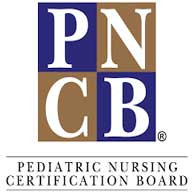Kitchen
- While cooking, turn handles of pots and pans towards the back of the stove so they don’t get knocked off and baby can’t reach for them and pull them down.
- Secure cleaning supplies such as knives, scissors, dishwater soap, etc. in drawers with locks or latches or on high shelves.
- Use placemats instead of tablecloths. Tablecloths are easy to pull and can send glasses and sharp silverware falling to the floor.
- Secure refrigerator and/or freezer door with safety latch.
- If your stove allows, consider removing the knobs and placing them out of baby’s reach, especially if baby can turn the knobs and accidently turn on the burners.
Bathroom
- Use a safety latch on the toilet – this will also help toys from getting thrown into a cool, new “pool”.
- Make sure to keep hair dryers, and curling irons away from the edge of the counter. Cords hanging down are tempting to pull!
Living Room
- Mount larger furniture to the wall, if possible. As your little one pulls to stand they will reach for whatever’s nearest to them. Make sure what they’re pulling up on is as sturdy as possible.
- When guests come over, place purses and bags in high up places where baby can’t get into them.
- Make sure all rugs have non-skid material on the bottom since baby is still unsteadily walking.
Laundry Room
- Keep laundry detergent and other dangerous materials on high shelves and out of children’s reach.
All Over the House!
- Cover electrical outlets.
- Block off rooms you don’t want baby exploring and staircases with baby gates.
- Watch the windows. Tie up blinds cords so they are out of reach.
- Cushion the corners of tables and other sharp edges.
Baby-Proofing: 14 Tips for
Your Home
Your little one is movin’ and cruisin’! So what’s next? Now the challenge is making sure your house is ready for your toddler’s new explorations. Follow our room-by-room tips to help protect baby from touching, grabbing, and exploring the everyday items they will now be fascinated by!

It’s helpful for parents to experience the environment as their baby will. Parents should crawl on the floor in the area their baby will be, look for objects that could be potentially dangerous for baby, and remove them.
Keep in mind that when you go to family and friends’ houses they may not be baby-proofed. Babies are curious so be sure to closely watch baby so they don’t get into things that are unsafe. Outlets, cords, and potentially dangerous items safely covered or put away at your house may not be put away at a friend’s house.
While baby-proofing gives you a little piece of mind and helps protect baby, nothing replaces keeping a close eye on your child as they begin walking and exploring their surroundings in a whole new way. If you’ve planned ahead and made the environment as safe as possible, you’ll feel more comfortable letting your baby explore their surroundings, while keeping an eye on them.
